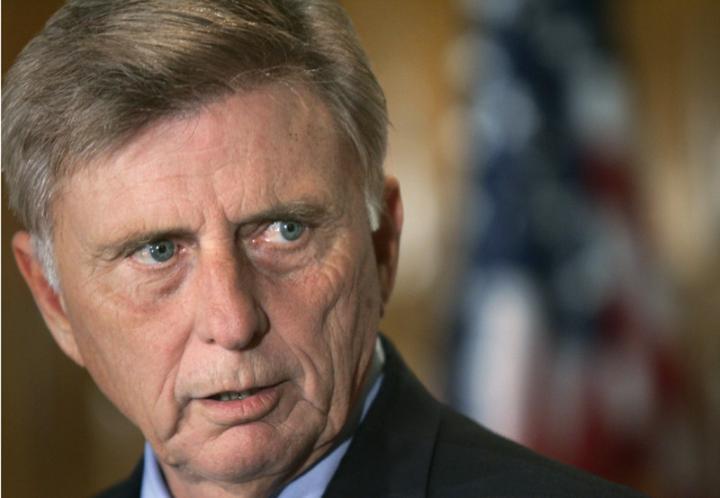In the face of widespread opposition from top Republicans in the House and five other lawmakers, Arkansas Democrat Gov. Mike Beebe has declined the Obama administration’s $3.8 million grant to research how to establish a new health insurance exchange.
Opposition from Lawmakers
A health care exchange is essentially a state-run marketplace where regulated and standardized health care plans may be purchased by individuals. Under Obama’s health care law, all states will be required to have a health care exchange by 2014, which will serve as a delivery system for massive subsidies and key regulations from Washington.
Taxpayer-funded federal grants have been given to most states as an incentive to create the exchanges, but several states—including Florida, Kansas, Louisiana, and Oklahoma—have rejected the money.
Concerns Cited
In a letter to the governor on September 27th, House Minority Leader John Burris and other Republican legislators outlined several key points to justify their opposition to accepting the grant:
• Moving forward with an exchange could undermine lawsuits challenging the health care overhaul.
• More grant money will be available next year.
• There are too many unanswered questions about the exchange.
• Federal rules and deadlines are likely to change, since only 13 states have so far embraced creating exchanges.
• The exchange could bankrupt the state’s Medicaid budget.
In addition to Burris, the letter was signed by Republican Reps. Bruce Westerman (Hot Springs) and Allen Kerr (Little Rock) and Senators Cecile Bledsoe (Rogers), Missy Irvin (Mountain View), and Johnny Key (Home of the Mountain).
Benefits of Exchange Unclear
Beebe says he won’t seek the money without lawmakers’ support. This is unlikely to grow when the chief benefits of health care exchanges remain unclear, says Dan Greenberg, president of the Advance Arkansas Institute in Little Rock.
“The government sets up a website and you get to look at several policies with state minimum required coverage and pick and choose from among the benefits you want. But doesn’t a competent insurance agent already do this? The government’s position, and certainly the position of the designers of ObamaCare, is that this service is too important to leave to the profit-driven market and cost-conscience consumers. Somehow, because there is a profit involved, it is bad,” said Greenberg.
“What they should be asking is: Can the government take over the role of the private market and not harm anyone? If government takes over this service, I think it will be a huge net cost for taxpayers, especially since any competent insurance agent already provides this service for free,” Greenberg explained.
Greenberg says lawmakers are concerned about the level of autonomy states may have if they set up exchanges.
“I think the predictions of those who support state health exchange are unlikely to come to fruition, because there will be pressure on legislators to include more mandates. Unfortunately, the average person doesn’t understand that every mandate costs them money. The legislators like a lot of mandates because it gives them things to talk about, makes things easier to discuss, and provides political cover for them,” said Greenberg.
Risk of Federal Exchange?
After Beebe declined the $3.8 million grant, a spokesperson for the state Democratic Party, Candice Martin, said rejecting the funds risks the federal government implementing an exchange without state input.
“The Democratic Party of Arkansas does not support the federal government implementing a health care exchange in Arkansas. We believe the exchanges would be better run by Arkansans,” Martin told KARK 4 News.
That’s just a hollow threat, says Katherine Vasilos, communications director for the Republican Party of Arkansas.
“Gov. Beebe and his allies know that the voters of this state do not want ObamaCare, so they are seeking cover from his signature legislative achievement,” she said. “There are a number of reasons that a federal exchange will not work.”
Vasilos says there is no need to spend money until the Supreme Court rules on the law’s constitutionality.
“The bottom line is that we shouldn’t spend time or money implementing ObamaCare in Arkansas. When the court rules on this, there will be ample time to implement a health care exchange” if necessary, she said.
Federal Implementation Deemed Unlikely
Greenberg agrees exchange implementation by the federal government is unlikely.
“Ultimately, the fate of ObamaCare is going to rest on the decisions of the 50 state governors and their legislators to implement or not implement things like the state health care exchanges. If the federal government has to build 35 federal exchanges in the next 18 months, it’s over. The federal government doesn’t have the money to implement that many exchanges in that short a time,” said Greenberg.
“There is no funding available because the designers of ObamaCare didn’t anticipate widespread refusal to set up state health care exchanges,” explains Greenberg.
Greenberg maintains it would make little difference for Arkansas taxpayers if they had a state level health exchange once the requirement went into effect.
“Once ObamaCare is operational, it will expand an already strained state Medicaid budget which suffers from a low reimbursement rates. All of us are going to pay for ObamaCare through higher taxes, higher premiums, and less service,” Greenberg predicts. “Defenders of a state-controlled health exchange seem to think that there will be more autonomy under a state-controlled exchange and control of the regulatory environment. I don’t think this vision will be realized.”





